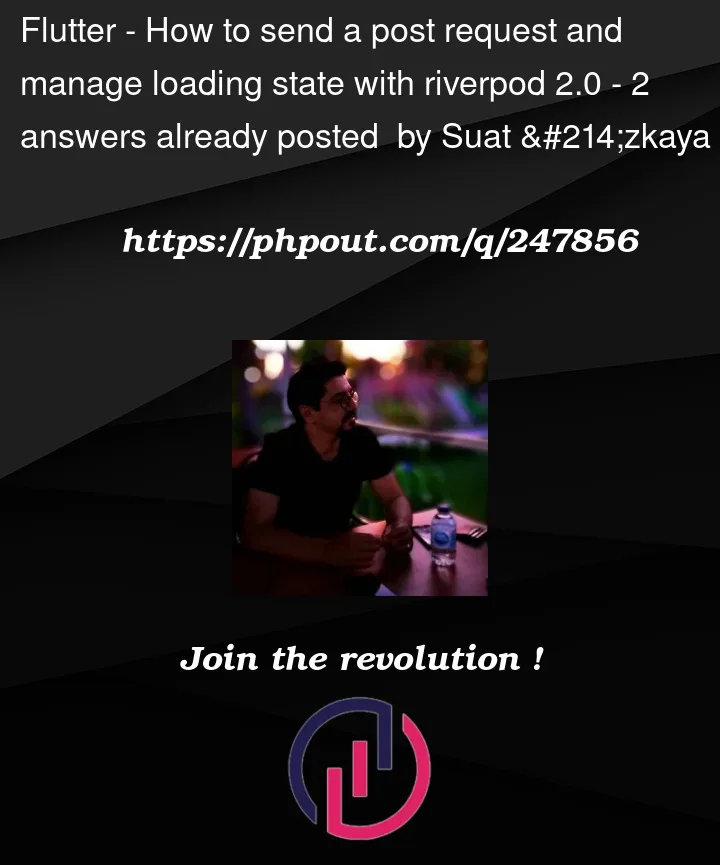I am trying to implement a very basic loading state.
During initState, sending a post request with some parameters. And want to show a loading state on UI during I got a result (success, or failure)
I can not understand how to use build() method and AsyncLoading() together. Also the return type of the provider and build method.
This is the provider I am trying to use:
I think I am missing something very similar, however can not find any example of such a case that the build method take parameters.
If this was a get method, there is an example.
void initState() {
super.initState();
Future.microtask(
() async => ref.watch(wOListProvider.notifier).getWoList(widget.woNumber),
);
@riverpod
class WOList extends _$WOList {
@override
FutureOr<List<WorkOrder>?> build() async {
return null;
}
List<WorkOrder> _woList = [];
Future<void> getWoList(int woNumber) async {
state = const AsyncLoading();
final result = await woListRepo.getWoList(wo: woNumber);
switch (result) {
case Success():
_woList = result.value.map((wo) => wo.toEntity()).toList();
state = AsyncData(_woList);
case Failure():
state = AsyncError(
result.exception.message,
StackTrace.current,
);
}
}
What is the best practice for such a usage?
when build method returns null, state is not AsyncLoading anymore, and loading state is lost.




2
Answers
All you need to do is this:
Or use
when/mapinstead of switch expression to parse the AsyncValue state.Also, you should store the current list in your
WOListstate, and not as a separate variable. Moreover, use.family(just make an argument in the notifier’sbuildmethod) to receive this argument directly from the widget whenwatching.You could use
FutureFamilyProviderto handle api calls with parameter.You can visit the docs here.
https://docs-v2.riverpod.dev/docs/essentials/passing_args